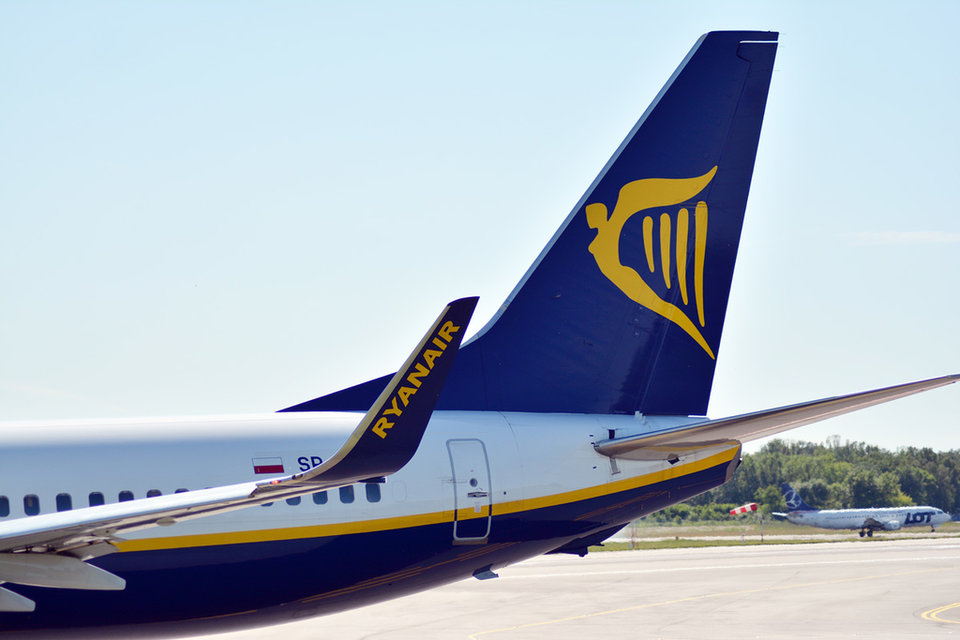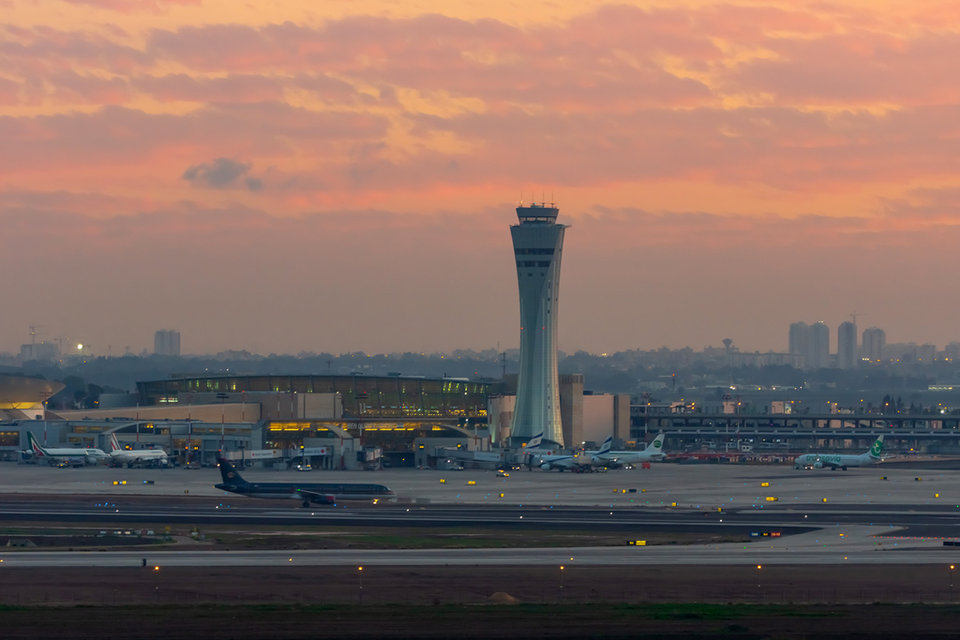Airport Operations
Air Passenger Duty post Brexit: in or out?
Several MPs recently urged the UK Government to cut or abolish Air Passenger Duty (APD) post-Brexit. They argue that the UK’s APD rate is higher than any other EU country and that these taxes add unreasonable amounts to the cost of every ticket. Furthermore, they believe that reducing APD by 50% would encourage two-thirds of airlines to pick up new routes. Alex Love asks: are they right?
Amid environmental groups demanding higher taxes on air travel and the growing trend of ‘flight-shaming’, a cross-party group MPs in the UK is pushing for Air Passenger Duty (APD) to be slashed or scrapped entirely.
After Brexit, the Air Passenger Duty Reform Group claims that abolishing or halving APD will unlock significant economic benefits and give the UK a competitive advantage.
“As an island trading nation, and with international trade deals post-Brexit, I think that helping reduce APD so that people can travel more both for business and pleasure is something that will be good for the economy,” says Conservative MP Henry Smith, who chairs the group, and has Gatwick Airport in his Crawley constituency.
Smith claims that the £3.7bn the levy brings in is lower than the revenue that could be generated if APD was abolished.
The campaign to scrap APD has been welcomed by many airlines, including low-cost carrier Ryanair.
“Air Passenger Duty should be fully abolished and the UK should follow the Irish example to allow tourism and jobs to grow and ensure airports can compete and attract more business. APD makes countries less attractive to airlines and visitors, particularly for regional airports,” says a Ryanair spokesperson.
“Removing the travel tax will help grow British tourism and business at a time when it needs support given the ongoing uncertainty created by Brexit. The removal of APD would also support the regions, which are impacted the most by this tax."
Image:
Is APD a price worth paying?
Not everyone in the travel industry wants APD to be cut. Tim Williamson is customer director of Responsible Travel, a sustainable travel agent based in Brighton. He proposes that APD shouldn’t just be kept, but should actually go up for environmental reasons.
“It needs to increase and that’s purely as a result of the climate science on aviation,” he says. “I hope fares go up because of a general recognition that the market is oversupplied. And that taxation is coming in to slow down the increase in aviation so that we stand a chance of hitting the 1.5°C planet average temperature rise by 2030.”
Williamson dismisses Henry Smith’s suggestions that abolishing APD would bring in more money than the levy currently raises.

Low-cost carrier Ryanair has welcomed calls to scrap APD. Image: Grand Warszawski / Shutterstock.com
“It’s just nonsense, it makes absolutely no sense. The aviation sector is growing at a massive rate anyway,” he says. “APD is not a barrier to the growth of the UK PLC.”
Independent aviation commentator Sally Gethin says there were positives and negatives in keeping APD, highlighting both the environmental benefits, while also potentially leaving the UK at a competitive disadvantage post-Brexit. Nevertheless, she suggests that scrapping APD may not be the magic fix that some suggest.
“Keeping Air Passenger Duty might not actually make a difference to the travel trends because passenger traffic is still climbing and passengers do want to travel. So it may not be the silver bullet,” she explains.
Keeping Air Passenger Duty might not actually make a difference to the travel trends because passenger traffic is still climbing
Air Passenger Duty explained
UK Air Passenger Duty is charged on all flights for passengers aged over 16 and is the highest in Europe. It is roughly three times more expensive than the rate charged in France and twice as much as Germany currently taxes.
In the UK, there are two bands. Band A is for shorter flights where the distance between London and the destination’s capital city is up to 2,000 miles. Band B covers long-haul flights when the distance between London and the nation of arrival’s capital city is greater than 2,000 miles.
Prices for Band A start at £13 for the reduced rate, which typically means economy seating. The standard rate begins at £26, covering business and first-class. The higher rate is £78. Higher rates are for planes weighing more than 20t or carrying fewer than 19 people.
Band B’s reduced rate is £78, the standard levy is £172, and its higher rate is £515. Band B levies are due to increase in 2020, with £80 for reduced, £176 for standard, and £528 added onto the higher rate.
The tax originally came into force on 1 November 1994, having been introduced in the previous year’s budget by then chancellor Ken Clarke in John Major’s Conservative Government.
As with most taxes, APD has been increased many times in subsequent budgets. Henry Smith voted in favour of budgets in 2012, 2013 and 2014, which all included rises in APD.

Image:
“APD was part of an overall budget package,” he explains. “Therefore, I was faced with a choice of voting against the whole budget that I agreed with, say, 95% of it, or voting against the budget because of one issue.”
“But certainly, I think that Brexit has thrown into much sharper relief the importance of us being an island trading nation for reducing APD.”
APD is considered one of the simplest taxes for governments to increase.
“My understanding of APD from having worked for two airlines is that it’s one of the lowest costs and most efficient taxes that the government has, which also comes back to why it’s never going to be cut,” explains Tim Williamson. “It’s one of the easiest and progressive taxes the government has and they’re never, ever going to reduce it.”
Yet if it were abolished, would new routes materialise? And where exactly would they operate?
Brexit has thrown into much sharper relief the importance of us being an island trading nation for reducing APD
New potential flight routes in the UK
As far as connectivity goes, the UK is grossly imbalanced with a disproportionate amount of decent transport links serving London and the south-east. Elsewhere in the country, options can be more limited. Scrapping APD is seen as a way to increase travel options for those living in the regions by opening up possibilities for more flights, particularly as many London airports are either at full capacity or are very close to reaching it.
Trade body Airlines UK claims that APD has made certain routes too costly to run. In a report from September 2018, the organisation claims that scrapping ABD could lead to new domestic routes such as Liverpool to Southampton, Bristol to Leeds, and Edinburgh to Guernsey.
Short-haul non-domestic flights could see services from Belfast to Madrid, Aberdeen to Munich, and Newcastle to Lisbon. While potential long-haul routes could run from Birmingham to Tel Aviv, Edinburgh to Delhi, and Bristol to Dubai.
“Airlines UK holds the longstanding view that the UK’s high levels of Air Passenger Duty - the highest in the developed world for long-haul and the highest in Europe for short-haul - is doing damage to the UK economy and our connectivity, by making routes too expensive for carriers to put on and maintain,” says an Airlines UK spokesperson.

One potential long-haul route could run from Birmingham to Tel Aviv Airport. Image: AllaKhananashvili / Shutterstock.com
“In a post-Brexit world and as we look to reach out to new markets, all the while strengthening our existing links to Europe and beyond, this appears all the more self-defeating.
“We want the tax to be cut by at least 50% across the board. Our research shows that if APD were abolished as many as 65 new routes from the UK would become viable, both long and short-haul, and from airports mainly outside the south-east of the UK.”
Despite Brexit looming on the horizon, there is a general consensus that there won’t be a dramatic increase in flight costs once the UK leaves the EU due to competitive pressures, at least in the short term.
If APD were abolished as many as 65 new routes from the UK would become viable, both long and short‑haul
Environmental responsibility
The aviation industry is estimated to contribute 2.5% of all global manmade greenhouse gas emissions, which is lower than many people think.
But given the backdrop of environmental protests and the general public becoming more eco-conscious, is abolishing APD an environmentally responsible thing to do? Henry Smith MP thinks so and suggests that technology will play an ever-greater role in aviation’s future.
“I do think the answer is through technology,” he says. “Last year, Virgin Atlantic had its first trans-Atlantic bio-fuels flight landing at Gatwick Airport. EasyJet, most of their planes now are the A320 Neos, which I think are a quarter to a third more efficient in terms of fuel burn.”
“So I do think that we can have economic growth and environmental sustainability at the same time. I don’t think the two are mutually exclusive.”

Last year, Virgin Atlantic’s first trans-Atlantic bio-fuels flight landed at Gatwick Airport, UK. Image: NextNewMedia / Shutterstock.com
Meanwhile, Tim Williamson proposes that increased APD should, in fact, be ring-fenced and invested in developing new technologies for sustainable aviation. He also urges the government to offer more incentives for people to use greener methods of travel such as rail. For example, Germany is proposing to increase APD to offset its cuts in VAT from 19% to 7% on train journeys longer than 50km as part of a series of environmental measures.
“You’ve got to get people off planes, especially for short journeys. We understand that while there aren’t viable, sustainable alternatives to kerosene that means long-haul flights are going to be difficult. Certainly, EasyJet and others think that short-haul electrification, short-haul hybrid, short-haul synthetic fuel aircraft are not a million miles away,” he says.
“It has to happen quickly, because of 2030, because of the 1.5oC, we would take all the mechanisms of APD because they already exist. They’re already understood by the industry, by government and to a certain extent by the customers. You could implement a Green Flying Duty based on APD very quickly.”
EasyJet and others think that short‑haul electrification, short‑haul hybrid, short‑haul synthetic fuel aircraft are not a million miles away